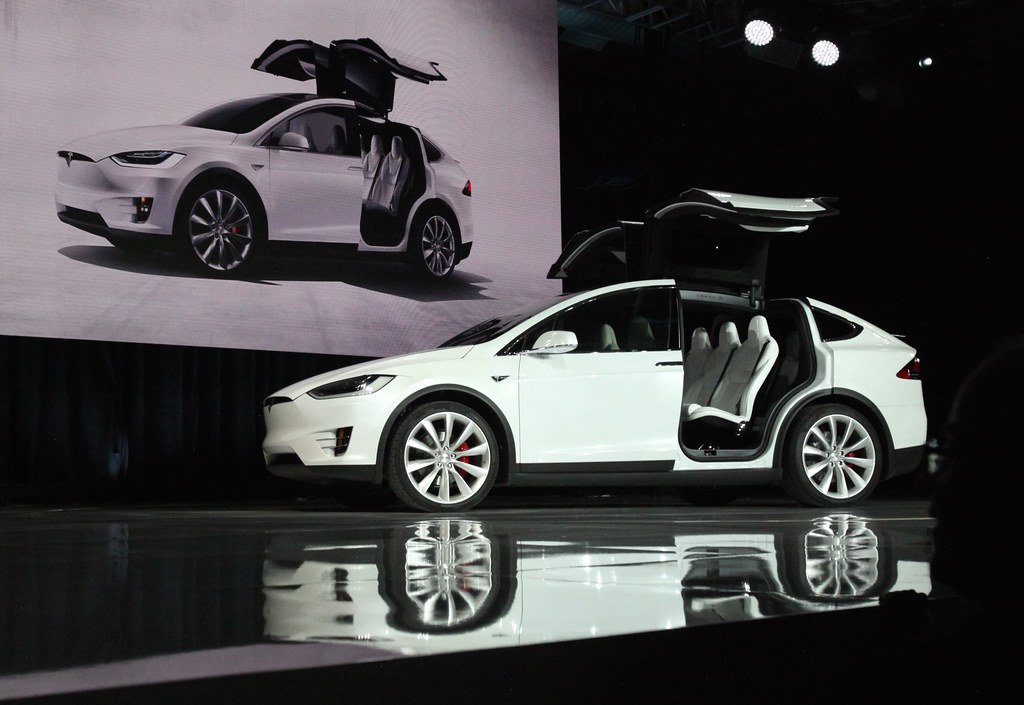In the face of escalating environmental concerns, the automotive industry has witnessed a transformative shift toward sustainable alternatives. As of 2022, global carbon dioxide emissions from transportation accounted for approximately 24% of total energy-related CO2 emissions, making the need for eco-friendly transportation solutions more pressing than ever. Two prominent contenders in this realm are fully electric cars (BEVs) and hybrid cars. This article delves into the distinctions between the two technologies, examining their advantages and drawbacks.
Fully Electric Cars:
Fully electric cars, exemplified by Battery Electric Vehicles (BEVs), are powered exclusively by electricity stored in high-capacity batteries. This design eliminates reliance on traditional internal combustion engines, resulting in zero tailpipe emissions. With increasing concerns about air quality and climate change, the appeal of BEVs lies in their ability to offer a clean and sustainable mode of transportation. Electric cars are lauded for their quiet operation, lower operating costs due to fewer moving parts, and the elimination of direct emissions. However, a significant challenge remains the limited range of some electric vehicles on a single charge, which can deter potential buyers, especially in regions with inadequate charging infrastructure.
Hybrid Cars:
Hybrid cars, on the other hand, represent a transitional solution blending traditional internal combustion engines with electric power. They come in two main types: parallel hybrids, where the electric motor assists the engine, and plug-in hybrids, which can be charged externally and operate on electric power alone for a limited range. Hybrids offer the advantage of extended range compared to fully electric cars, making them a practical choice for individuals concerned about range anxiety. Additionally, regenerative braking systems in hybrids contribute to energy efficiency by converting kinetic energy into electric power during deceleration. However, critics argue that hybrids may not go far enough in reducing emissions, as they still rely on fossil fuels, and the overall environmental impact depends on driving habits and the frequency of electric-only operation.
Environmental Impact and Efficiency
Environmental Impact of Fully Electric Cars:
Fully electric cars are celebrated for their minimal environmental impact, particularly when charged using renewable energy sources. With zero tailpipe emissions, they contribute significantly to reducing air pollution in urban areas. However, it’s crucial to consider the environmental impact of manufacturing electric vehicle components, especially the high-capacity batteries. The extraction and processing of raw materials, such as lithium and cobalt, raise concerns about resource depletion and environmental degradation. Nonetheless, ongoing research and development aim to improve battery technology and recycling methods, minimizing the ecological footprint of electric cars throughout their lifecycle.
Environmental Impact of Hybrid Cars:
Hybrid cars, while more fuel-efficient than traditional vehicles, still rely on internal combustion engines, leading to some level of emissions. The overall environmental impact of hybrids depends on the frequency of electric-only operation and the energy mix used for charging. The manufacturing process of hybrid vehicles also involves the production of both traditional and electric components, contributing to a moderate environmental footprint. As technology advances, manufacturers are exploring ways to enhance the efficiency of hybrid systems and reduce their overall impact on the environment.
Affordability and Market Trends
Affordability of Fully Electric Cars:
The cost of fully electric cars remains a significant consideration for many consumers. While the long-term operational costs are often lower due to reduced maintenance and fuel expenses, the initial purchase price can be higher than that of traditional or hybrid vehicles. Government incentives, tax credits, and advancements in battery technology are expected to drive down the costs of electric cars in the coming years. Additionally, as more manufacturers enter the electric vehicle market, increased competition is likely to further enhance affordability and accessibility.
Affordability of Hybrid Cars:
Hybrid cars, being a more established technology, generally have a lower upfront cost compared to fully electric cars. The familiarity with conventional engines also appeals to consumers hesitant about making a complete shift to electric vehicles. Over time, as advancements in hybrid technology continue and production scales up, the cost of hybrid vehicles is expected to decrease. Government incentives and rebates further contribute to making hybrids an attractive option for environmentally conscious consumers seeking a cost-effective and efficient alternative.
Charging Infrastructure and Convenience
Charging Infrastructure for Fully Electric Cars:
One of the primary challenges faced by fully electric cars is the need for a robust charging infrastructure. While charging stations are becoming more prevalent, especially in urban areas, concerns about range anxiety persist. Advances in fast-charging technology aim to alleviate this issue, allowing for quicker and more convenient charging. Additionally, home charging solutions are gaining popularity, providing owners with the flexibility to charge their vehicles overnight. As the charging infrastructure continues to expand and technology improves, fully electric cars are likely to become more practical for a broader range of consumers.
Charging Infrastructure for Hybrid Cars:
Hybrid cars, benefiting from a dual power source, are less dependent on charging infrastructure. Traditional gasoline stations can readily refuel hybrid vehicles, offering a convenience that fully electric cars may not match. Plug-in hybrid owners, however, can take advantage of charging stations for electric-only operation. The flexibility of refueling at traditional gas stations or charging at home gives hybrid vehicles an edge in terms of convenience, making them an attractive option for those who may not have access to extensive charging networks.
Technological Advancements and Future Prospects
Technological Advancements in Fully Electric Cars:
The rapid pace of technological innovation in fully electric cars continues to redefine the automotive landscape. Ongoing developments in battery technology, charging speed, and range are addressing the limitations that have hindered widespread adoption. Electric vehicles are becoming increasingly sophisticated, featuring advanced driver-assistance systems, connectivity options, and smart energy management. As these advancements progress, fully electric cars are poised to become more accessible, appealing, and seamlessly integrated into the broader concept of smart and sustainable transportation.
Technological Advancements in Hybrid Cars:
Hybrid cars, while not evolving at the same breakneck speed as fully electric cars, still benefit from ongoing technological advancements. Improvements in hybrid systems, energy regeneration, and the integration of electric-only driving modes contribute to enhanced fuel efficiency and reduced emissions. As automakers invest in research and development, hybrid vehicles are expected to become more refined, offering consumers an even more compelling combination of fuel efficiency, reduced environmental impact, and technological features.
Government Policies and Incentives
Government Policies Supporting Fully Electric Cars:
Governments worldwide are increasingly implementing policies to incentivize the adoption of fully electric cars. These initiatives include tax credits, rebates, and subsidies aimed at reducing the upfront costs for consumers. Additionally, some regions provide perks such as access to carpool lanes, reduced registration fees, and exemptions from certain taxes. These policies signal a commitment to fostering a transition towards greener transportation and play a crucial role in promoting the widespread adoption of fully electric vehicles.
Government Policies Supporting Hybrid Cars:
Hybrid cars have also benefited from government policies and incentives, although to a somewhat lesser extent than their fully electric counterparts. Many countries offer tax credits and rebates for the purchase of hybrid vehicles, encouraging consumers to choose more environmentally friendly options. As governments continue to refine and expand their environmental policies, the landscape for incentives may shift, impacting the attractiveness of both fully electric and hybrid vehicles in the market.
Consumer Perspectives and Trends
Consumer Perspectives on Fully Electric Cars:
Consumer attitudes toward fully electric cars are evolving, with an increasing number recognizing the environmental and economic benefits. However, concerns such as range anxiety, charging infrastructure, and initial costs continue to influence purchasing decisions. As more consumers experience the advantages of fully electric vehicles and charging infrastructure improves, the adoption rate is expected to rise. Additionally, the aspirational appeal of cutting-edge technology and the desire to contribute to a sustainable future are becoming powerful motivators for consumers considering fully electric cars.
Consumer Perspectives on Hybrid Cars:
Hybrid cars appeal to consumers seeking a balance between traditional and electric power. The familiarity of hybrid technology, combined with the convenience of traditional refueling, resonates with a broad consumer base. Many view hybrids as a practical transition towards a more sustainable lifestyle, particularly in regions where fully electric infrastructure may be limited. As automakers continue to enhance hybrid technology, these vehicles are likely to remain a popular choice for consumers looking to reduce their environmental impact without fully committing to an electric-only vehicle.
The debate between fully electric cars and hybrid cars is not only about technology but also about aligning with the values and preferences of consumers. Government policies and incentives play a pivotal role in shaping the automotive landscape, influencing the choices available to consumers. As these policies evolve, and technology continues to advance, the automotive industry is poised for a transformative shift towards greener, more sustainable transportation. The ultimate success of fully electric and hybrid cars hinges on their ability to meet the diverse needs and expectations of consumers, ensuring a smoother transition to a more environmentally conscious future.
Frequently Asked Questions (FAQs):
Q1: What is the main difference between fully electric cars and hybrid cars?
A1: The primary distinction lies in their power sources. Fully electric cars, or Battery Electric Vehicles (BEVs), rely solely on electric power stored in high-capacity batteries and produce zero tailpipe emissions. Hybrid cars, on the other hand, combine an internal combustion engine with an electric motor, offering flexibility in power sources and typically emitting fewer emissions than traditional vehicles.
Q2: Are fully electric cars more environmentally friendly than hybrid cars?
A2: Fully electric cars are generally considered more environmentally friendly, as they produce zero tailpipe emissions during operation. However, the environmental impact also depends on factors such as the source of electricity used for charging and the manufacturing processes. Hybrid cars, while more fuel-efficient than traditional vehicles, still rely on internal combustion engines and may emit some pollutants.
Q3: What challenges do fully electric cars face?
A3: Fully electric cars face challenges such as limited driving range on a single charge, the need for an extensive charging infrastructure, and concerns about the environmental impact of battery production. Addressing these challenges requires advancements in battery technology, increased charging infrastructure, and sustainable manufacturing practices.
Q4: Are government incentives available for both types of vehicles?
A4: Yes, many governments offer incentives for both fully electric and hybrid vehicles. These incentives may include tax credits, rebates, access to carpool lanes, reduced registration fees, and exemptions from certain taxes. The specific incentives vary by region and are designed to encourage the adoption of environmentally friendly vehicles.
Q5: Which type of vehicle is more cost-effective in the long run?
A5: The long-term cost-effectiveness depends on various factors, including the initial purchase price, driving habits, and maintenance costs. Fully electric cars often have lower operational costs due to fewer moving parts and reduced fuel expenses. However, hybrid cars may have a lower upfront cost, making them more cost-effective for some consumers. Advances in technology and increased market competition are expected to contribute to the overall cost-effectiveness of both types of vehicles.
Q6: How is the charging infrastructure evolving for electric vehicles?
A6: The charging infrastructure for electric vehicles is expanding rapidly. Governments, private companies, and electric utilities are investing in the development of public charging stations, and advancements in fast-charging technology are reducing charging times. Additionally, many electric vehicle owners opt for home charging solutions, further contributing to the convenience and accessibility of electric vehicle charging.
Related posts:
- The Future of Aviation in Europe: Navigating Towards Innovation and Sustainability
- A Glimpse into the Future: British Economy Forecast for 2024
- Top 8 Sustainable Startup Ideas for 2024: Paving the Way for a Greener Future
- Navigating the Sustainable AI Markets of 2024: A Feast for Hungry Entrepreneurs




